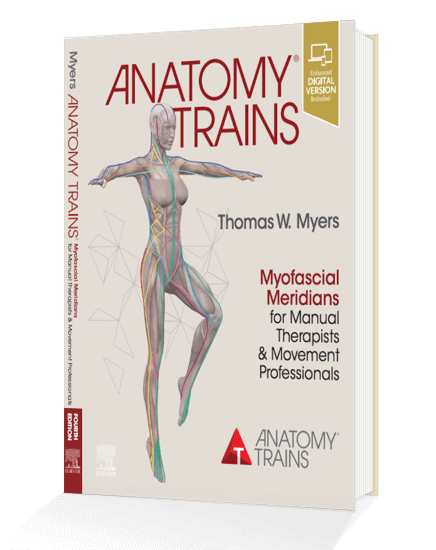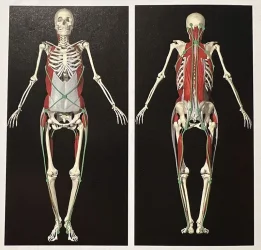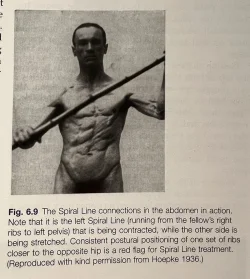The Anatomy Trains
model describes a kind of fascial helix that crosses at the abdomen and the back of the neck.
In my opinion, the model doesn't state that a muscle
crosses the midline, but that two structures that
meet at the midline
work together in directions that cross the body. The model finds the "X" to be useful in terms of function and interaction.
It's a model that integrates, rather than separates.
Images from the secomd edition of the book.
Help map the pattern and shape the change that people want to see in their body. Our worldwide best seller now has a fourth edition!

www.anatomytrains.com



